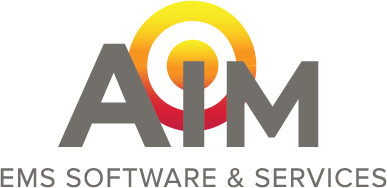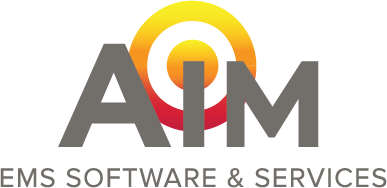This blog post is part of a series that addresses ambulance billing best practices. Our ambulance billing blog series highlights tips and insights to help you improve ambulance billing efficiency, lower ambulance claim rejections, and get reimbursed faster.
Are you doing these things to ensure proper & timely reimbursement for hospice transports?
The mechanics of billing hospice transports are unique and can be somewhat challenging to maneuver depending on the quality and timeliness of communications between the EMS provider and hospice care provider.
In this post, we navigate the landscape of hospice transports and ways to ensure proper and timely reimbursement.
Billing a Hospice Transport when Transport is Related to Terminal Illness
All individuals with Medicare Part A coverage are entitled to receive hospice care benefits once they select a hospice provider. This includes transportation services related to the hospice diagnosis. Medicaid and Medicare’s hospice eligibility requirements are almost identical; however, Medicaid coverage policies can vary from state to state.
According to the Medicare Benefit Policy Manual, Ambulance transports of a hospice patient, which are related to the terminal illness and which occur after the effective date of election, are the responsibility of the hospice agency.
While ambulance transportation benefits normally fall under Medicare Part B, when a patient is approved the hospice elective and the transport relates to the terminal illness, Part A takes precedence. Importantly, along with ambulance services, this coverage also provides for wheelchair van transportation (also billed to the hospice agency), while Part B does not.
Billing a Hospice Transport when Transport is Unrelated to Terminal Illness
Any services provided to a patient enrolled in hospice that are not related to the treatment and management of the patient’s terminal illness must be submitted to Medicare Part B with the GW modifier (Service not related to the Hospice patient’s terminal condition) as the second modifier and the primary diagnosis on the claim must be a diagnosis unrelated to the terminal illness.
For further details on the GW modifier, see Part B Hospice Modifiers GV and GW.
Billing Best Practices for Hospice Transports Following a Hospital Discharge
The earlier that an ambulance service is aware that the patient is a discharge to home or specialty facility for hospice care, the quicker the EMS agencies call intake/dispatching can implement scheduling protocols related to this type of ambulance transport.
To avoid improper billing or delays, call intake or dispatchers should ask these important questions during ambulance transport scheduling:
- Is the patient being discharged to hospice care?
- What is the date/time the hospice election goes into effect?
This information should be shared with EMS billers, ideally through an integrated dispatch to billing software solution, so that the EMS billing staff can apply the proper billing processes as soon as the hospice transport PCR is received.
Typically, the hospice election date is the date after hospital discharge, which means the initial transport will deny by Medicare if the GW modifier is not used.
Consistency and Accuracy when Billing Hospice Transports
Any good EMS billing software should include the tools needed to clearly and accurately document a patient’s hospice status. EMS billers should flag accounts with a hospice status so that whenever a new bill for the patient is entered, they have the ability to efficiently determine what type of claim (related or unrelated to hospice illness) need submitted.
Going forward, a properly designed EMS workflow that includes protocols for scheduling a hospice transport, as well as system processes for billing a hospice transport will undoubtedly improve the timeliness and accuracy of your EMS reimbursement.
AIM Can Help With Hospice Transport Billing
Unsure your in-house or outsourced EMS billing staff are handling your hospice transport billing properly or efficiently? Give us a call at 1-800-726-4690, fill out our online information request form, or read more about ambulance billing best practices. We welcome the chance to learn more about your specific EMS agency’s challenges and how we may be able to help.
From EMS Dispatch, ePCR, and EMS Billing Software, AIM offers a full line of online EMS Software that can handle all of your workflow needs. Or, if you want a team of EMS billing processional to handle your agency’s billing for you, explore our EMS Billing Services.



